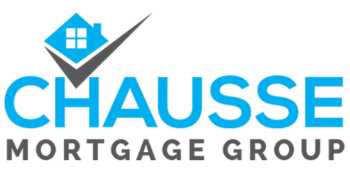
How to Pay Off Your Mortgage Faster: Strategies That Work
A mortgage is more than a monthly promise. It is a long-term relationship with your finances. But it doesn’t need to be one that lasts decades longer than necessary. Many Canadians assume their mortgage schedule is fixed in stone. In reality, there is room to maneuver if you know where to look. Paying off a mortgage faster requires more than ambition. It takes intention, planning, and a few smart moves that align with your lifestyle.
Biweekly Payments Over Monthly
One of the simplest, most effective changes is switching from monthly to biweekly payments. This method doesn’t require a financial overhaul. You are essentially making one extra monthly payment each year without feeling the squeeze. Over time, that small shift shaves years off your amortization period. Think of it as quietly outpacing your lender's expectations, one modest installment at a time. Consistency here can outperform flashier strategies in the long run.
Lump-Sum Payments: A Hidden Weapon
Many lenders allow lump-sum payments annually without penalty. These can come from bonuses, tax refunds, or unexpected financial wins. The trick is not in how big the payment is, but in how early it happens. Applying these sums toward your principal, even once or twice, can drastically change your trajectory. It is not just about the amount you save in interest. It is about reclaiming years of your life from long-term debt.

Accelerate During Stable Seasons
Not every year feels stable. But when it does, and expenses are predictable, use that time to increase your regular payments. Most lenders give you the option to increase your payments by a certain percentage. This is often underutilized. The best time to be aggressive is when life feels calm. Doing so builds a cushion for the less forgiving years. Stability isn’t permanent, but the gains you make during it can be.
Shorter Amortization: A Bigger Commitment With Bigger Rewards
Choosing a shorter amortization period from the start or upon renewal forces higher monthly payments. That is not an easy decision for every household. However, if your cash flow allows it, this can significantly reduce the total interest paid. It’s a mindset shift. The goal changes from affordability to efficiency. You are not just buying a home. You are purchasing back your future. Shorter terms prioritize freedom over flexibility, which, for some, is exactly what matters.
Avoiding Lifestyle Creep
When income rises, spending often follows. That gradual increase in lifestyle costs can quietly sabotage your financial goals. Instead, consider directing salary increases or side hustle earnings toward your mortgage. This redirection strategy keeps your expenses steady while boosting your repayment momentum. The gratification might not be immediate, but the payoff is dramatic. Every time your paycheck grows, let your mortgage balance shrink instead of expanding your lifestyle by default.
Refinancing With Purpose
Refinancing can sound like just another tool in a mortgage broker’s toolbox, but when used wisely, it unlocks serious potential. If interest rates drop or your credit has improved, refinancing at a lower rate and maintaining your old payment level attacks your principal harder. The key is discipline. Don’t refinance just to reset your term or free up cash. Use it to reduce debt, not extend it. This works best when combined with consistent financial habits.
The Psychological Edge of Seeing Progress
Numbers on a spreadsheet do not always feel real. But seeing your principal shrink faster than scheduled can shift your relationship with money. Consider tracking your balance monthly and celebrating milestones. The difference might not be in your bank account immediately, but the boost in motivation is real. Humans respond to progress. When you see that your efforts are moving the needle, staying committed becomes less about sacrifice and more about satisfaction.
Understand Your Mortgage Terms Thoroughly
Penalties, prepayment allowances, and amortization structures vary widely across lenders. What you don't know can slow you down. It pays literally to understand every clause in your mortgage. If you are unsure whether your lender allows extra payments or if penalties apply, ask. These details shape your entire strategy. Sometimes, the best way to speed things up is to avoid stepping on landmines disguised as small print. Awareness is as important as action.
Staying Flexible While Staying Committed
Life is unpredictable. Jobs change, families grow, and the unexpected becomes the norm. Accelerating mortgage repayment does not mean locking yourself into rigid commitments. Instead, build flexibility into your plan. Keep emergency funds separate. Stay open to adjusting your strategy year by year. Progress does not need to be linear. What matters is the direction. A pause does not equal failure. The real power comes from restarting again and again with clarity and purpose.
Conclusion
Paying off a mortgage faster is not reserved for the wealthy or the obsessive. It is a practical, achievable goal with the right mindset and strategy. Across Ontario, homeowners who commit to thoughtful planning, disciplined spending, and smart repayment tactics are regaining financial freedom ahead of schedule. For those exploring their options, resources at Chausse Mortgage Group provide valuable clarity and insights for mapping out a personalized approach that prioritizes both flexibility and long-term success.
FAQs
1. Is it really possible to pay off a mortgage in 5–7 years?
It is possible if you know what to do. Many homeowners shorten their mortgage term and lower their interest costs by making larger payments, using lump sums, or moving to payments every two weeks.
2. What’s the first step to paying off my mortgage early?
First, look over the terms of your existing loan. See if you can pay more than what's due without being charged extra. Then make a plan, set a goal, and promise to regularly pay off your debt with extra money.
3. Do biweekly payments make a real difference?
Of course. By paying twice a month, you will give 26 1/2-payments, equaling one full extra payment per annum. This helps you pay off your loan faster and lowers your debt.
4. Can refinancing help me pay off my mortgage faster?
Yes, it is possible to reduce your interest cost by taking out a new loan with a decreased period or a lower interest rate. Should you take a shorter repayment period, simply remember that you need to have the ability to afford the increased amounts of payment every month. It's great for people who have a steady income.
5. Should I use bonuses or tax refunds toward my mortgage?
Yes. You can pay off your mortgage much faster without affecting your monthly budget if you put bonuses, tax refunds, or other unexpected income straight toward your principal.
6. What lifestyle changes support faster mortgage payoff?
Spending less on things that aren't necessary and not taking on new debt can help you put more money toward your house. Making even small sacrifices every month can save you a lot of money over time and get you out of your debt early.
7. Does early payoff affect my credit score?
It does not matter with your credit to settle your mortgage early. In fact, timely payment, on-time payment and repayment of the loan in a responsible manner can assist you in increasing your credit score over time.


